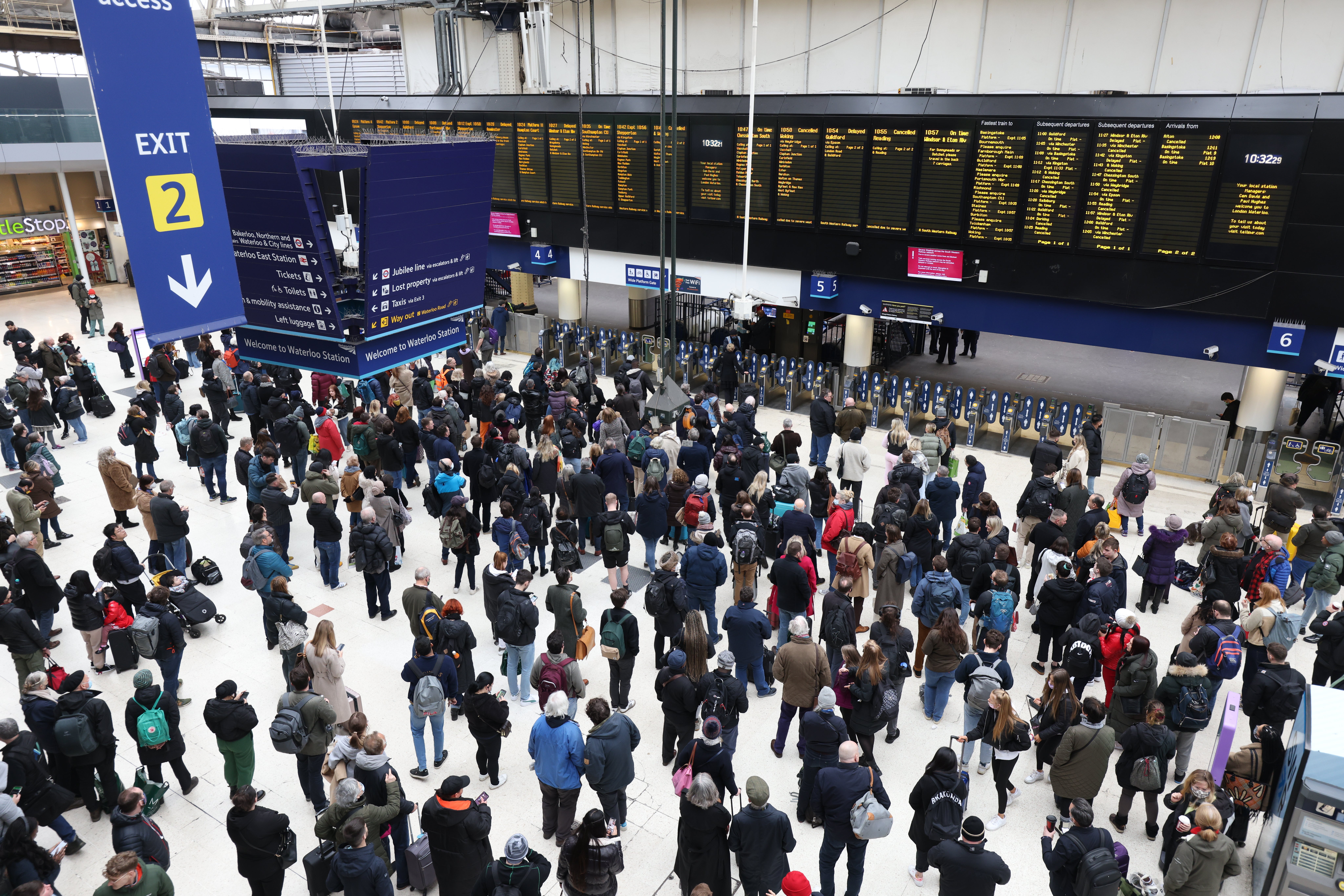Threat of national rail strike looms as ballot closes over pay and jobs
Members of the RMT union at Network Rail and 15 train operators have been voting on whether to launch a campaign of industrial action.

Your support helps us to tell the story
From reproductive rights to climate change to Big Tech, The Independent is on the ground when the story is developing. Whether it's investigating the financials of Elon Musk's pro-Trump PAC or producing our latest documentary, 'The A Word', which shines a light on the American women fighting for reproductive rights, we know how important it is to parse out the facts from the messaging.
At such a critical moment in US history, we need reporters on the ground. Your donation allows us to keep sending journalists to speak to both sides of the story.
The Independent is trusted by Americans across the entire political spectrum. And unlike many other quality news outlets, we choose not to lock Americans out of our reporting and analysis with paywalls. We believe quality journalism should be available to everyone, paid for by those who can afford it.
Your support makes all the difference.The threat of a national rail strike is expected to come a step closer after a ballot of more than 40,000 railway workers closes on Tuesday.
Members of the Rail, Maritime and Transport union (RMT) at Network Rail and 15 train operators have been voting on whether to launch a campaign of industrial action over jobs, pay and conditions.
RMT general secretary Mick Lynch told the PA news agency he expected strong support for strikes when the ballot result is announced.
“We are asking for job security and a guarantee of no compulsory redundancies, and we will not accept imposition of detrimental pay and conditions,” he said.
Leaders of several trade unions criticised the Transport Secretary after he unveiled plans, via a Sunday newspaper interview, to legislate for minimum staffing requirements during rail strikes.
Grant Shapps told the Sunday Telegraph that ministers were looking at drawing up laws which would make industrial action illegal unless a certain number of staff were working.
The interview sparked anger across the trade union movement, with some officials saying it had soured the atmosphere at such a crucial moment for the railways. If Network Rail’s signallers go on strike there is expected to be a significant impact on services.
It is possible that services would only run for part of the day, such as from 7am to 7pm, and only on main lines.
Services could be around 20% of the normal weekday timetable.
Tim Shoveller, Network Rail regional managing director, said: “We know how important a pay increase is for our people and we want to give a pay rise. As a public body, it is important that any pay increase is one the taxpayer and passengers can afford.
“We continue to talk with our trades unions to find solutions on pay, and will do everything we can to avoid damaging industrial action which would harm the industry’s recovery from the pandemic, cost millions of pounds and undermine our ability to afford the pay increases we want to make.”
Our whole focus now should be securing a thriving future for rail that adapts to new travel patterns and takes no more than its fair share from taxpayers, instead of staging premature industrial action which would disrupt passengers’ lives and put the industry's recovery at risk
A Rail Delivery Group spokesperson, said: “The pandemic was an unprecedented shock for the railway, with the lowest passenger numbers in over 150 years and record levels of public funding to keep it running.
“Our whole focus now should be securing a thriving future for rail that adapts to new travel patterns and takes no more than its fair share from taxpayers, instead of staging premature industrial action which would disrupt passengers’ lives and put the industry’s recovery at risk.
“For the sake of our people and everyone who relies on our railway every day, we want the RMT to work with us to bring how we run our services up to date so that it is more reliable, more affordable and inspires more passengers back on board.
“We are acutely aware of the cost-of-living pressures being felt by workers and families across the UK. Every business wants to support its staff and the railway is no exception.
The Prime Minister is firmly of the view that unions should talk to the Government before causing irreparable damage to our railways, strikes should be the last resort not the first
“All train operators want to offer their staff a pay rise and are working hard to make that happen, but as an industry we have to change our ways of working and improve productivity to help pay our own way – the alternatives of asking taxpayers to shoulder even more of the burden after contributing an extra £16 billion to the industry during Covid, or passengers to pay even higher fares when they too are feeling the pinch, simply isn’t fair.”
The Prime Minister’s official spokesman said: “Railways are going through difficult times with passenger numbers down. We need to make sure they’re fit for the future. We want a fair deal for staff, for passengers and taxpayers so money isn’t taken away from other essential services, the NHS being a good example.
“The Prime Minister is firmly of the view that unions should talk to the Government before causing irreparable damage to our railways, strikes should be the last resort not the first.”